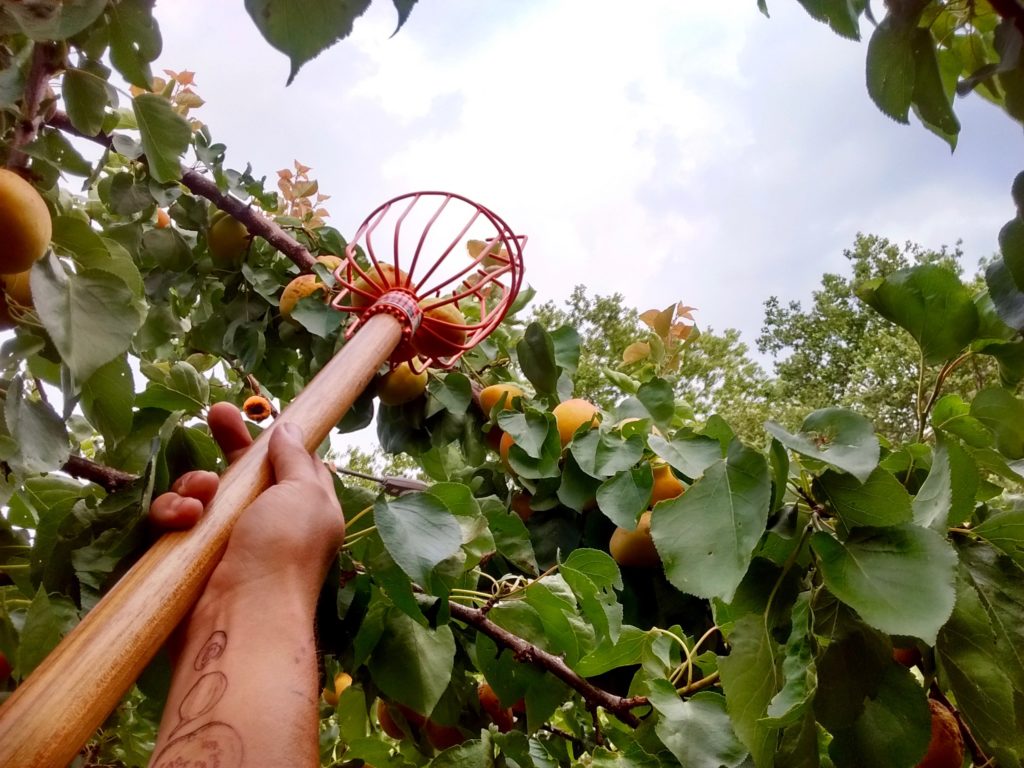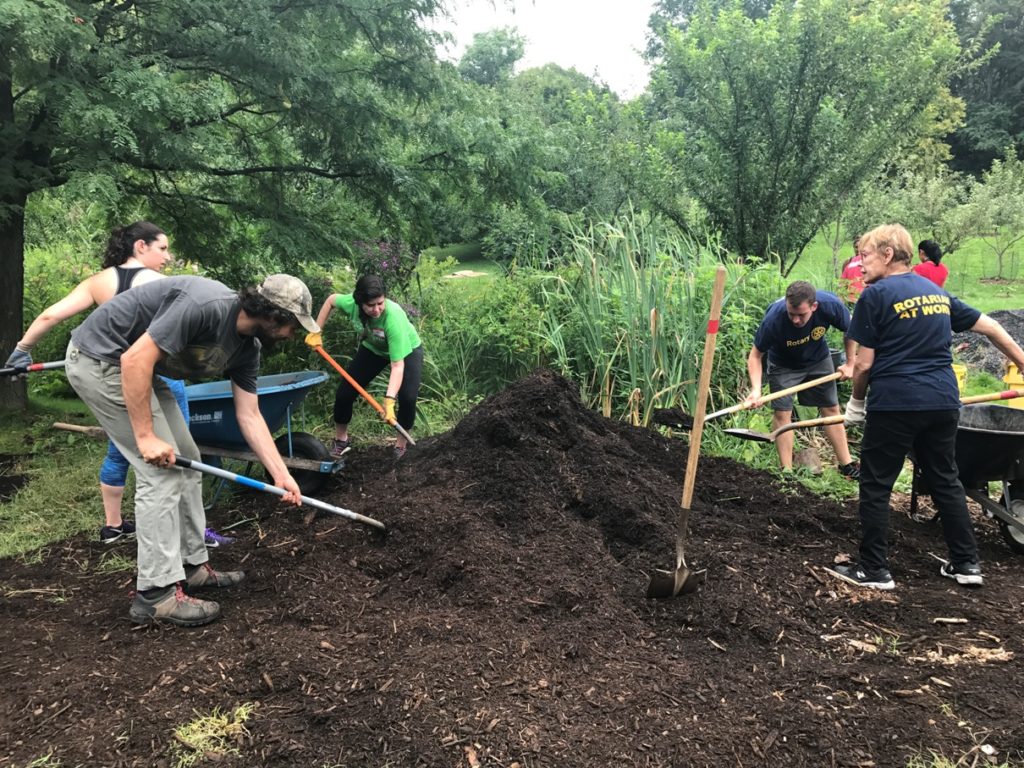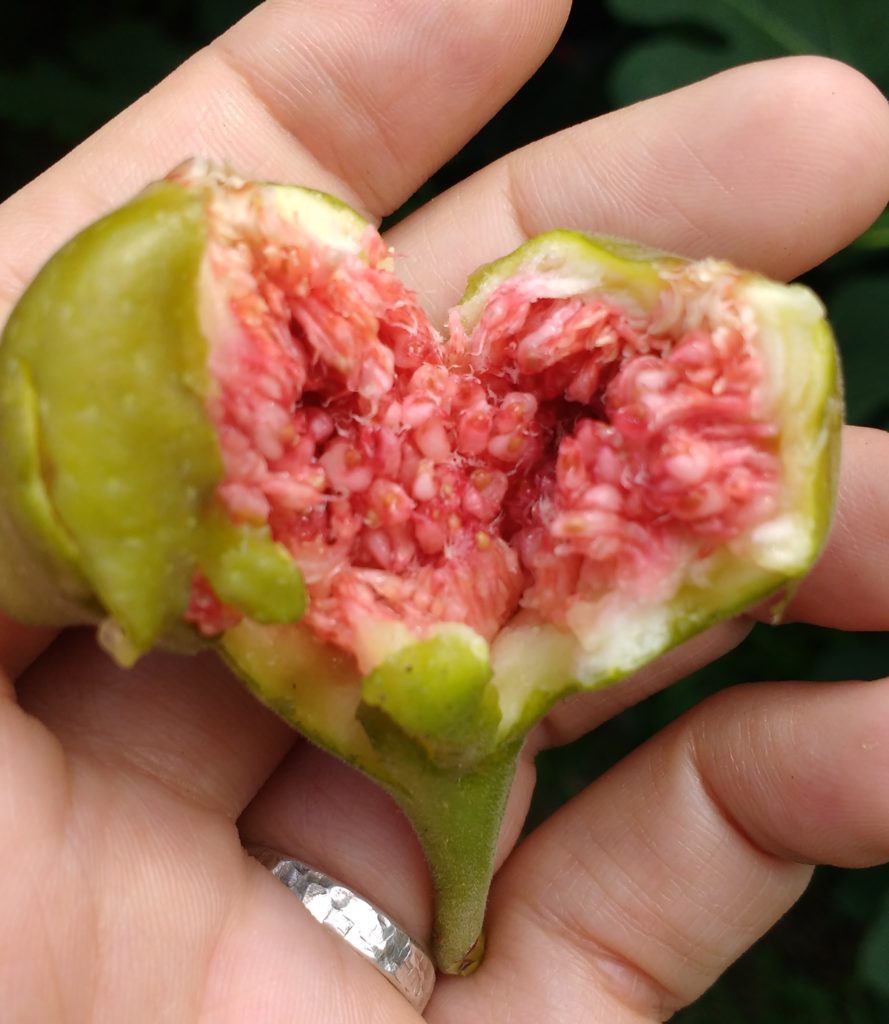“That’s what keeps me coming back: the Bartram Orchard and Sankofa Farm offer beauty, nourishment, self-determination and community now, but they also move thoughtfully and intentionally towards an uncertain future.”
-Angelina Conti, 2016 Golden Persimmon Volunteer
In honor of the Philadelphia Orchard Project’s 10th anniversary in 2017, we’re looking back at a different year in our history every month. We’re also designating Golden Persimmon Awards for each year in recognition of the extraordinary efforts of our volunteers.

POP ORCHARDS PLANTED in 2016: Philadelphia Ronald McDonald House, Kleinlife Community Center, Monumental Baptist Church, Penn Alexander School, CHOP Karabots, Jewish Farm School
56 POP ORCHARD SITES SUPPORTED IN 2016

POP VOLUNTEER HIGHLIGHT: Angelina Conti
Bartram’s Garden often feels like a green and lush oasis perched on the lower Schuylkill River, an almost-secret garden with clear views of Center City and reminders of its urban and industrial context all around. Row homes and apartment buildings are visible from the orchard and a glance across the river reveals oil tanks and a natural gas facility. There are two freight lines that run near the property and their clanging and shrieking has underscored many an orchard volunteer day.
The juxtaposition of fruit trees and farm fields with fossil fuel industry and dense urban neighborhoods is one I cherish – it’s what this work is all about.
When volunteers at the orchard at Bartram’s Garden ask me what I do, besides coordinate volunteer days, they are often surprised when I say that I’m a digital learning specialist. Urban orchard care may seem to be a far cry from online learning, but I see them as contiguous. Both assume that human bodies and minds deserve accessible and meaningful nourishment and self-determination, and both build towards a future where that is more possible.
I connected with POP through the Master Gardeners program in 2014 and started to volunteer as the Bartram Orchard liaison that spring. I had missed the planting of the orchard and the founding of the Farm, in 2011 and 2012, and many of the fruit trees were young and not yet productive. Then and now, one of the primary tasks for volunteers is weeding around the base of the trees. That’s a fairly low-drama and repetitive task, but the setting couldn’t be more pleasant: the Bartram orchard is perched on a sunny hillside between the historic house, the Sankofa Community Farm on a former baseball diamond, and the community garden. It never ceases to amaze me how many people are happy to sit in the shade of fruit trees, their hands in the dirt, and weed for hours at a time.

I have continued to volunteer at the Bartram orchard largely because it, and the youth-powered farm it is attached to, are as loyal to this urban context and to current neighbors as to the historicity of the site. The intention with the orchard was not necessarily to plant trees that John Bartram himself would have grown in the 1700s – though we do have some antique varieties – but to showcase all the weird and wonderful things that will grow in Philadelphia today. And it is quite a variety: Bartram Orchard alone has over 130 fruit and nut trees and more than 35 different species of fruit growing in the orchard and berry garden. This includes more supermarket-familiar fruits like apples, peaches, pears, plums and cherries, but also jujubes, shipova, figs, persimmons, che fruit, medlars, and native species like juneberries, paw paws, and elderberries. Many of them are dwarf trees and (nearly) all of them do well in an urban setting.
We are lucky that the Philadelphia area offers a confluence of good soil and negotiable USDA zones that allow us to grow such a variety here. We’re less lucky that the extremities of climate change will mean unpredictable seasons for the foreseeable future – for generations. Facing a future like that makes orchard diversity even more important. We may lose the apricot crop due to a late frost one year (as we did in 2017) but have an abundant harvest with other crops. The growing happening at Bartram, like at all POP orchards, is designed to be replicable in backyards and gardens around the city, even as climate change shapes Philadelphia in new and scary ways.
That’s what keeps me coming back: the Bartram Orchard and Sankofa Farm offer beauty, nourishment, self-determination and community now, but they also move thoughtfully and intentionally towards an uncertain future.
That, and it is also a special privilege to witness someone’s first taste of a fresh fig!

SUPPORT US! If you found this entry useful, informative, or inspiring, please consider a donation of any size to help POP in planting and supporting community orchards in Philadelphia: phillyorchards. org/donate.